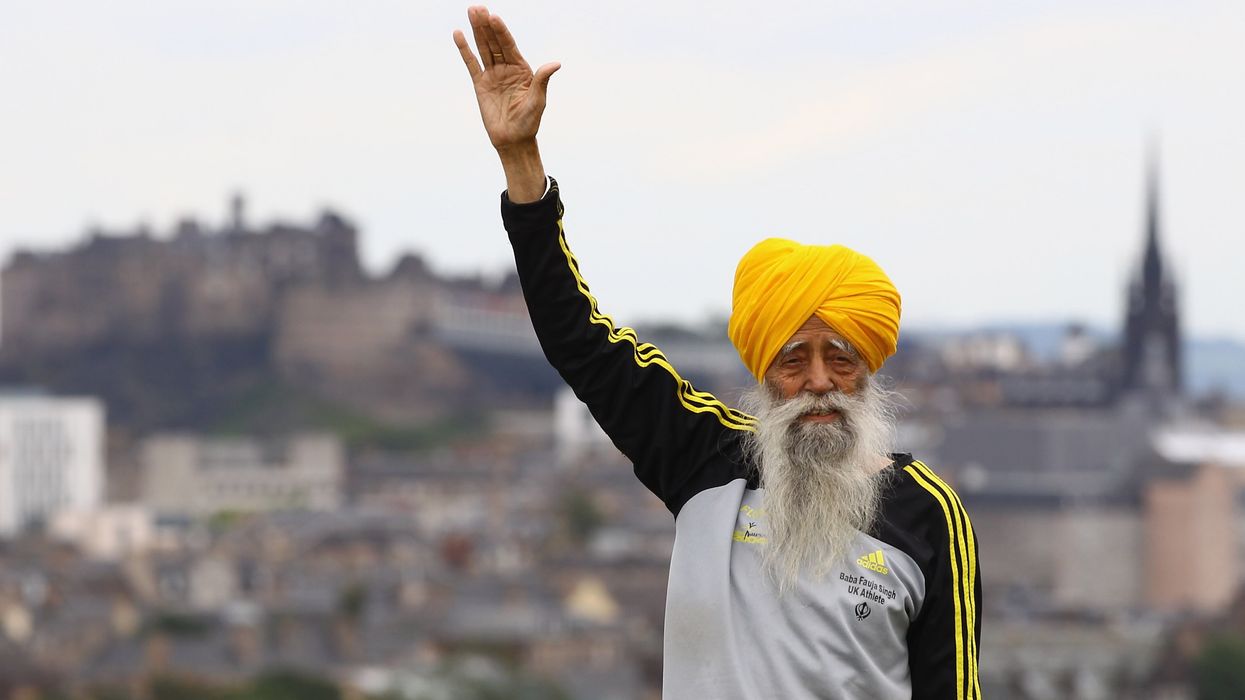FAUJA SINGH, the Indian-born British national widely regarded as the world’s oldest distance runner, died in a road accident at the age of 114, his biographer said on Tuesday.
Singh, popularly known as the "Turbaned Tornado", was hit by a vehicle while crossing the road in his native village of Bias in Punjab’s Jalandhar district on Monday.
His biographer, Khushwant Singh, confirmed the news on social media. “My Turbaned Tornado is no more,” he posted on X. “He was struck by an unidentified vehicle... in his village, Bias, while crossing the road. Rest in peace, my dear Fauja.”
My Turbaned Tornado is no more. It is with great sadness that I share the passing of my most revered S. Fauja Singh. He was struck by an unidentified vehicle around 3:30 PM today in his village, Bias, while crossing the road. Rest in peace, my dear Fauja . pic.twitter.com/LMFh7TNE8B
— Khushwant Singh (@Singhkhushwant) July 14, 2025
Singh did not possess a birth certificate, but his family said he was born on April 1, 1911. He began long-distance running at the age of 89 and went on to complete full marathons (42 kilometre) until the age of 100. His last competitive event was a 10-kilometre run during the 2013 Hong Kong Marathon, when he was 101. He completed the race in one hour, 32 minutes and 28 seconds.
Singh gained global attention after taking up distance running later in life, following the deaths of his wife and one of his sons. He was inspired to run marathons after watching them on television. Though widely celebrated as the oldest marathon runner, he was not officially recognised by Guinness World Records due to the absence of verifiable proof of his age. According to him, birth certificates were not issued in his region when he was born under British colonial rule.
He was chosen as a torchbearer at both the Athens 2004 and London 2012 Olympic Games and featured in several advertising campaigns alongside sports figures such as David Beckham and Muhammad Ali.
Singh attributed his physical endurance to his daily routine of walking on farmland and a diet that included home-churned curd and the Indian sweet “laddu” made with dry fruits.
Indian Prime Minister Narendra Modi paid tribute to Singh on X. “Fauja Singh was extraordinary because of his unique persona and the manner in which he inspired the youth of India on a very important topic of fitness,” Modi wrote.
Fauja Singh Ji was extraordinary because of his unique persona and the manner in which he inspired the youth of India on a very important topic of fitness. He was an exceptional athlete with incredible determination. Pained by his passing away. My thoughts are with his family and…
— Narendra Modi (@narendramodi) July 15, 2025
“He was an exceptional athlete with incredible determination. Pained by his passing away. My thoughts are with his family and countless admirers around the world.”
(With inputs from agencies)





